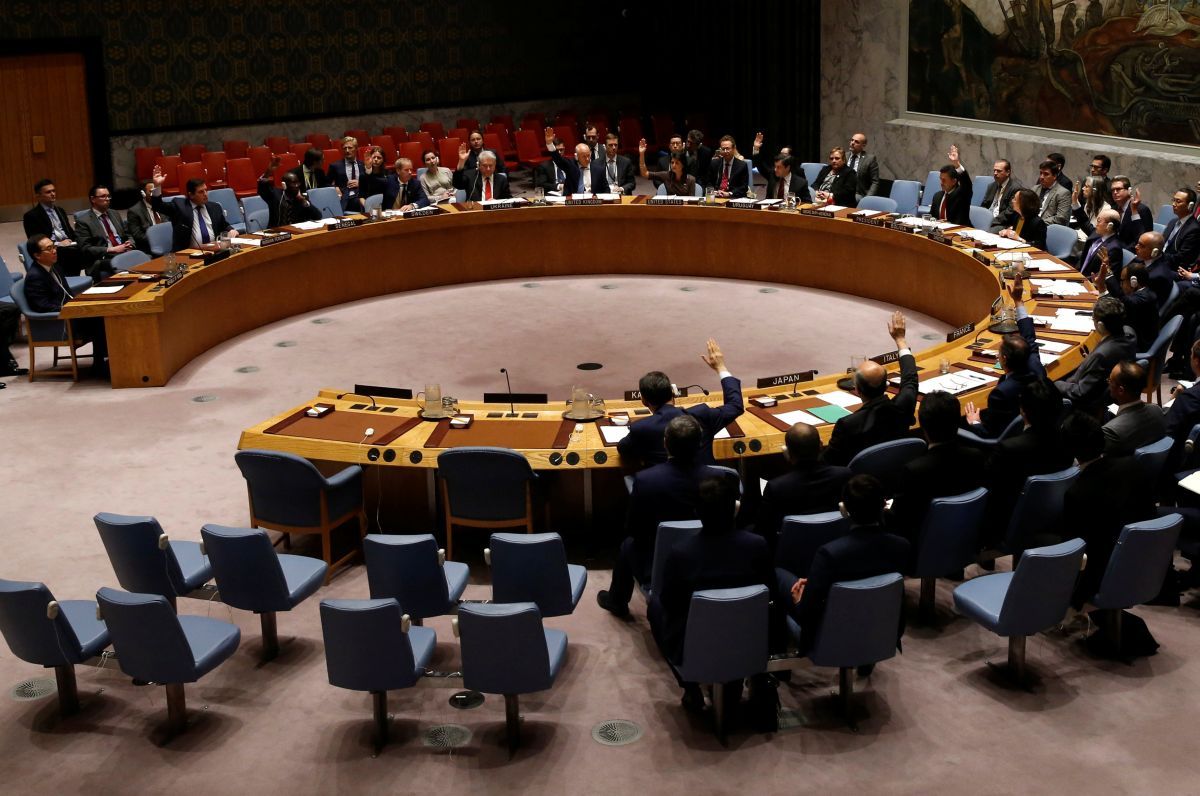
Western powers seem to have found an effective way to bypass Russian veto on Syria probe at the UN Security Council.
Ian Martin, a former UN official and Amnesty International chief, said: “The Russian veto need not be the end of efforts for collective action by the UN. The responsibility of asserting accountability for the use of chemical weapons, and for bringing an end to the horrors of the Syrian conflict, rests with the world community as a whole,” The Guardian reports.
The proposal is known to have support among western officials fearing the absence of an attribution mechanism not only gives Syria free range to continue to use chemical weapons, but also to deliver a severe blow to the international world order.
Western governments, worried that the impasse is weakening the wider authority of the security council, want to pick up a rarely used route, first set up in the 1950 Korean crisis. Called “uniting for peace”, it would enable nine members of the 15-strong security council to bypass a Russian veto and refer the matter to a full vote at the general assembly. It would then require a two-thirds majority by the general assembly for an attribution mechanism to be agreed.
Read alsoRussia vetoes U.S. bid to form new Syria chemical weapons inquiry – mediaThe 1950 “uniting for peace” route was explicitly designed to be used when the security council could not meet its responsibilities over maintenance of peace.
The UN secretary general, António Guterres, said at the weekend that the world had entered a new cold war era where the threat of instability was greater than the previous cold war.
The western powers have made concessions to secure a compromise UN resolution on attribution, but will not concede the principle that Russian could veto the inspection team findings on Syria chemical attacks.

